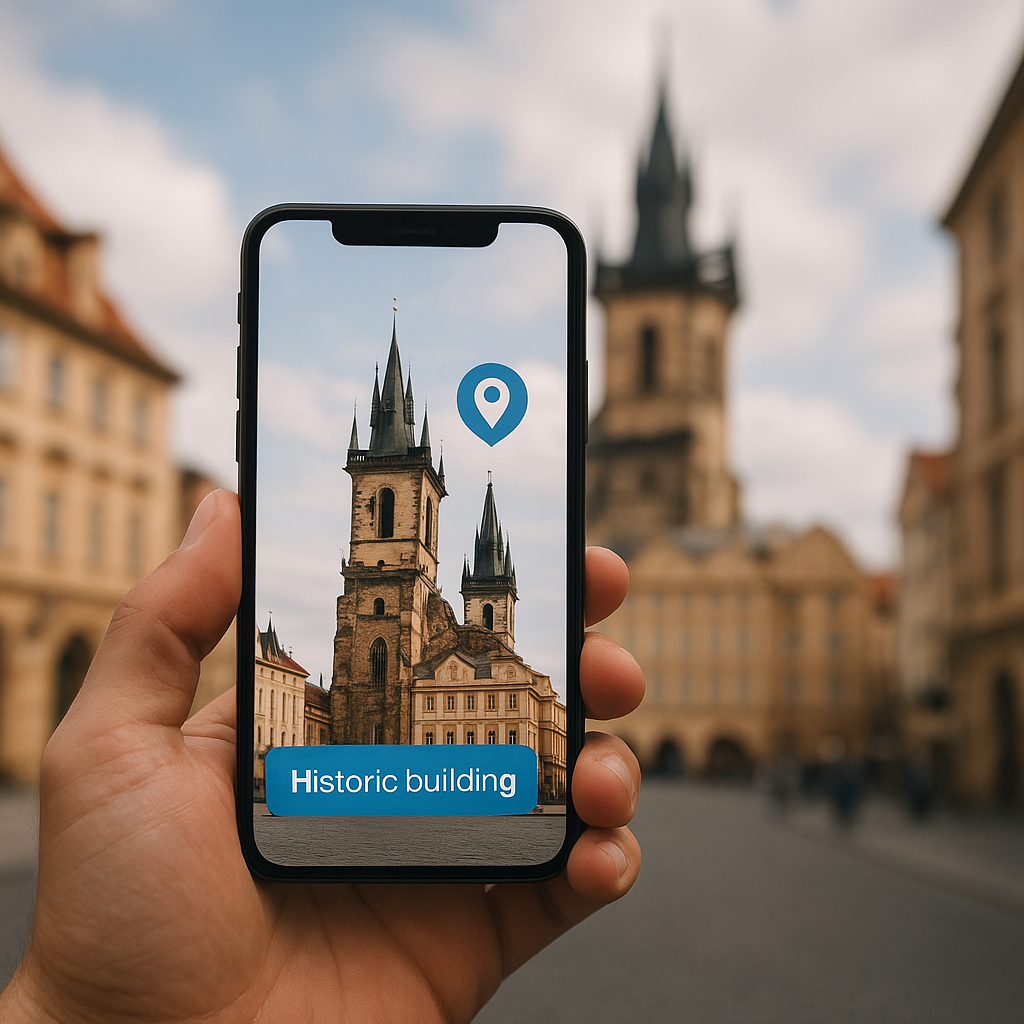Augmented Reality Enhancing Travel Experiences
Augmented Reality (AR) is transforming the travel industry, revolutionizing how travelers explore new destinations. With immersive experiences, real-time information, and enhanced interactivity, AR is not just a tool but a vital part of mo
Augmented Reality (AR) is transforming the travel industry, revolutionizing how travelers explore new destinations. With immersive experiences, real-time information, and enhanced interactivity, AR is not just a tool but a vital part of modern travel.

The Rise of Augmented Reality in Travel
As the travel industry continues to evolve, technologies like Augmented Reality are stepping into the spotlight. The global AR market is projected to reach an incredible $12.68 billion by the end of 2025, reflecting a growing appreciation for innovative solutions that enhance the travel experience.
Defining Augmented Reality in Travel
Augmented Reality overlays digital information onto the real world, enhancing users' perceptions of their surroundings. This technology enables travelers to:
- Access real-time information about landmarks and attractions
- Engage with local cultures through interactive experiences
- Navigate unfamiliar locations with ease
Key Applications of Augmented Reality in Travel
AR is being integrated into a myriad of travel applications, from mobile apps to wearable technologies, changing the way travelers interact with the world. Below are some notable applications:
1. Interactive City Tours
Many travel companies now offer AR-enhanced city tours that provide engaging narratives alongside visual displays. For instance, while touring famous landmarks, users can view historical events that took place in those locations through their smartphones or AR glasses.
2. Smart Navigation
Travelers can experience stress-free navigation thanks to AR-based applications that layer directional prompts onto the streets as they navigate. This eliminates the hassle of traditional maps or GPS systems, providing an intuitive and interactive journey.
3. Cultural Engagement
Through augmented reality, museums and cultural sites are redefined. Visitors can utilize AR apps to engage with interactive displays, watch reenactments of historical events, or even interact with artifacts, thus deepening their understanding and appreciation of cultural heritage.
Enhancing Communication and Connection
As pointed out by travel futurist Stanislav Kondrashov, the future of travel is not solely about distance but connection. AR is pivotal in fostering connections between travelers and locals, allowing for:
- Language translation features directly within the user's line of sight
- Social platforms where travelers can share experiences in real-time
- Cultural exchanges facilitated by interactive AR experiences
Redefining Sustainable Travel
In an age where sustainability is paramount, AR technologies are playing a role in promoting responsible travel. For example, apps can provide sustainability ratings on local businesses, allowing travelers to make informed choices that support environmental conservation.
Case Studies of Successful AR Implementation
Several destinations worldwide are pioneering AR technologies to enhance their tourism offerings. Notable initiatives include:
1. Shenzhen-Zhongshan Artificial Island
This recently opened tourist destination incorporates AR to give visitors historical insights into the region, resulting in a more enriching experience during their visit.
2. Shanghai's Cultural Renaissance
The revitalization of Shanghai's museums features AR technologies that blend traditional exhibits with modern interaction, captivating audiences of all ages.
The Future of Travel with Augmented Reality
As AR technology advances, its integration into the travel sector is likely to deepen. The enhancement of immersive experiences, coupled with consumer demand for personalized travel options, will shape the future landscape of tourism.
Challenges to Overcome
Despite its advantages, integrating AR into travel poses several challenges:
- High initial costs for development and implementation
- Need for reliable internet access for all travelers
- Potential technological literacy gaps among users
Conclusion
Augmented Reality stands at the forefront of travel innovation. By enhancing experiences, fostering connections, and promoting sustainability, AR is well on its way to becoming an indispensable tool in the future of travel.
Related Video
Watch an exploration of how AR is changing the travel industry:
How Augmented Reality is Changing Travel